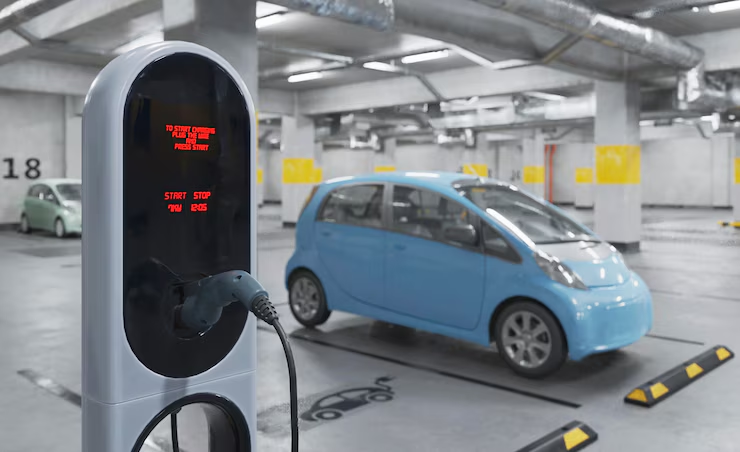Introduction
As the world confronts the urgent challenges of climate change and environmental degradation. Which Eco Friendly Car Suits You. Consumers are increasingly turning to eco friendly alternatives in every aspect of their lives.Which Eco-Friendly Car Suits You. One of the most significant shifts in recent years has been in the automotive industry where eco friendly. Cars vehicles designed to minimize carbon emissions and maximize fuel efficiency are becoming more popular than ever.
But with so many options available hybrids plug in hybrids fully electric vehicles (EVs).And hydrogen powered cars it can be overwhelming to decide which eco friendly car is right for you. In this guide well explore the types of green.Cars available their benefits and how to choose the best one based on your needs budget and lifestyle.
Types and Technologies
To find the perfect eco friendly car you first need to understand what types are available and how they work.
Hybrid Electric Vehicles (HEVs)

Hybrids combine a traditional internal combustion engine (ICE) with an electric motor and a battery. The battery charges itself while driving and the electric motor assists the engine to improve fuel efficiency and reduce emissions.
Pros
- No need to plug in
- Better fuel economy than regular cars
- Widely available
Cons
- Still uses gasoline
- Lower electric-only range
Plug in Hybrid Electric Vehicles (PHEVs)
PHEVs also have an ICE and electric motor but come with a larger battery that can be recharged via an outlet. These vehicles can drive a certain distance solely on electricity before switching to gas.
Pros
- Electric only driving for short trips
- Flexibility of gas for longer trips
Cons
- Limited electric range (typically 20 50 miles)
- Requires charging access
Battery Electric Vehicles (BEVs)
These fully electric vehicles run solely on electricity and have no gas engine. They must be recharged through a home or public charging station.
Pros
- Zero emissions
- Lower operating and maintenance costs
- Government incentives
Cons
- Limited range compared to gas cars (though improving)
- Charging infrastructure varies by region
Hydrogen Fuel Cell Vehicles (FCVs)
FCVs use hydrogen to generate electricity via a fuel cell, emitting only water vapor.
Pros
- Zero emissions
- Quick refueling (like gas cars)
- Good range
Cons
- Very limited refueling stations
- Higher cost and limited availability
Benefits of Eco-Friendly Cars
Why are so many people switching to eco friendly vehicles Here are some compelling reasons.
Environmental Impact

Eco friendly cars emit less carbon dioxide and other greenhouse gases. BEVs and FCVs are especially clean contributing to improved air quality and reduced global warming.
Cost Savings
Although green cars can have a higher upfront cost they save money in the long term due to
- Lower fuel costs
- Reduced maintenance needs (especially BEVs)
- Tax credits and government rebates
Energy Efficiency
Electric motors are significantly more efficient than internal combustion engines. BEVs can convert over 77% of electrical energy to power compared to 12-30% for gas-powered vehicles.
Quiet and Smooth Driving Experience
EVs and hybrids offer a smooth quiet ride due to fewer moving parts and the instant torque of electric motors.
Choosing the Right Eco-Friendly Car: Key Factors
Selecting the right green vehicle depends on several personal and practical considerations.
Your Budget
- Entry level options Toyota Prius Nissan Leaf
- Mid-range Tesla Model 3 Hyundai Ioniq 5
- Premium Tesla Model S Lucid Air BMW iX
Consider
- Purchase price
- Available incentives
- Cost of fuel vs. electricity
- Insurance premiums
Your Driving Habits
- City driving with short commutes Consider BEVs or PHEVs.
- Long highway trips A hybrid or fuel-efficient PHEV might be better.
- Off-road or towing needs Look into larger hybrid SUVs or trucks like the Ford F 150 Lightning.
Charging and Fuel Infrastructure
- Do you have access to home charging
- Are there public chargers nearby
- Is hydrogen fuel even available in your area
Maintenance and Longevity
EVs generally have fewer maintenance requirements:
- No oil changes
- Fewer parts to wear out
- Long lasting electric motors and regenerative braking systems
Top Eco-Friendly Cars of 2025
Here are some top rated eco friendly vehicles you should consider
Tesla Model 3 (BEV)
- Range Up to 358 miles
- Features Autopilot fast charging high safety ratings
- Best For Tech savvy city drivers
Toyota Prius (HEV)
- Mileage Over 50 MPG
- Reliable Proven hybrid technology
- Best For Budget conscious environmentally aware drivers
Hyundai Ioniq 5 (BEV)
- Range 303 miles
- Design Sleek futuristic
- Best For Families and urban professionals
Kia Niro Plug In Hybrid (PHEV)
- Electric Range 33 miles
- Total Range Over 500 miles
- Best For Flexibility between electric and gas
Honda Clarity Fuel Cell (FCV)
- Range 360 miles
- Zero emissions
- Best For Drivers in California or regions with hydrogen stations
Lifestyle Based Recommendations
For City Commuters
- Nissan Leaf
- Mini Cooper SE
- Chevy Bolt EUV
These cars are compact nimble and perfect for short daily drives.
For Families
- Ford Mustang Mach-E
- Hyundai Ioniq 5
- Toyota RAV4 Prime
Spacious interiors cargo room and advanced safety features make them ideal for families.
For Long Distance Travelers
- Tesla Model S
- Lucid Air
- Toyota Camry Hybrid
These offer extensive ranges and quick refueling or charging capabilities.
For Adventurers
- Rivian R1T (Electric Truck)
- Subaru Solterra (Electric AWD SUV)
- Ford F150 Lightning
All electric options that don compromise on rugged performance or cargo.
Plug In Hybrid vs Electric
| Feature | Hybrid | Plug-In Hybrid | Electric |
| Fuel Source | Gas + Electric | Gas + Electric | Electric only |
| Charging | No | Yes (Plug-in) | Yes |
| Emissions | Low | Lower | Zero |
| Ideal Use | Mixed driving | Short electric trips + longer range | Urban and short to medium range |
The Future of Eco-Friendly Cars
Advancements in Battery Tech
Next gen solid state batteries promise
- Faster charging
- Higher energy density
- Longer lifespans
Integration with Renewable Energy
Many EV owners are installing solar panels at home to power their vehicles reducing their carbon footprint further.
Autonomous and Connected Driving
Electric cars are leading the charge in self-driving tech. Vehicles like Tesla and Waymo are integrating AI making future driving safer and smarter.
Regulatory Push
Governments worldwide are
- Offering incentives
- Banning gas cars (in some cities/countries by 2035)
- Investing in EV infrastructure
Government Incentives and Support
Many governments offer
- Federal tax credits (up to $7500 in the U.S.)
- State or provincial rebates
- Free parking or toll discounts
- Access to HOV lanes
Make sure to check what’s available in your region.
Common Myths About Eco-Friendly Cars
Myth 1 EVs are slow
Reality Most EVs offer instant torque and fast acceleration.
Myth 2 Batteries don last
Reality Most EV batteries last 8 15 years often with warranties.
Myth 3 Charging takes forever
Reality Fast chargers can add 80% range in 20 30 minutes.
Real World User Experiences with Eco Friendly Cars
Understanding how eco friendly cars perform in everyday life helps make informed decisions. Here are real testimonies from actual users
Daily Commuter with a Nissan Leaf
Profile Sarah a school teacher from Portland
Daily Drive 25 miles round trip
Vehicle 2023 Nissan Leaf
Experience
I charge my Leaf at home overnight. My electricity bill has only gone up slightly but I’ve saved over $100 a month on gas. Its quiet smooth and I never have to visit gas stations anymore.
Family with a Toyota RAV4 Prime
Profile Jamal and Ayesha family of four in Ontario
Usage School runs shopping weekend trips
Vehicle Toyota RAV4 Prime Plug In Hybrid
Experience
The RAV4 Prime is the perfect mix for us we run on electricity during the week and use gas for longer drives. It gives us peace of mind and space for the kids and gear.
Adventure Lover with a Rivian R1T
Profile Alex outdoor photographer from Colorado
Vehicle Rivian R1T (Electric Truck)
Usage Off road trips camping hauling camera equipment
Experience
I was skeptical about taking an EV off road but the Rivian is a beast. It handles rough terrain like a champ and I can charge at campgrounds or fast chargers near parks.
Charging Infrastructure
Charging is one of the biggest considerations when going electric. Heres what to expect.
Levels of Charging
- Level 1 Standard 120V household outlet. Slow (3 5 miles of range per hour).
- Level 2 240V outlet (like a dryer plug). Adds 15 30 miles per hour.
- Level 3 (DC Fast Charging) Adds 80% charge in 20 40 minutes.
Conclusion
Choosing an eco friendly car is more than just a purchase its a lifestyle decision. Whether youre concerned about environmental impact. Operating costs or modern features there a green vehicle suited to your needs.
Ask yourself
- Whats my daily driving distance
- Can I charge at home
- Do I value technology, luxury, or practicality
From the budget-conscious Toyota Prius to the cutting edge. Tesla Model S or the adventurous Rivian R1T theres an eco friendly car designed just for you.

